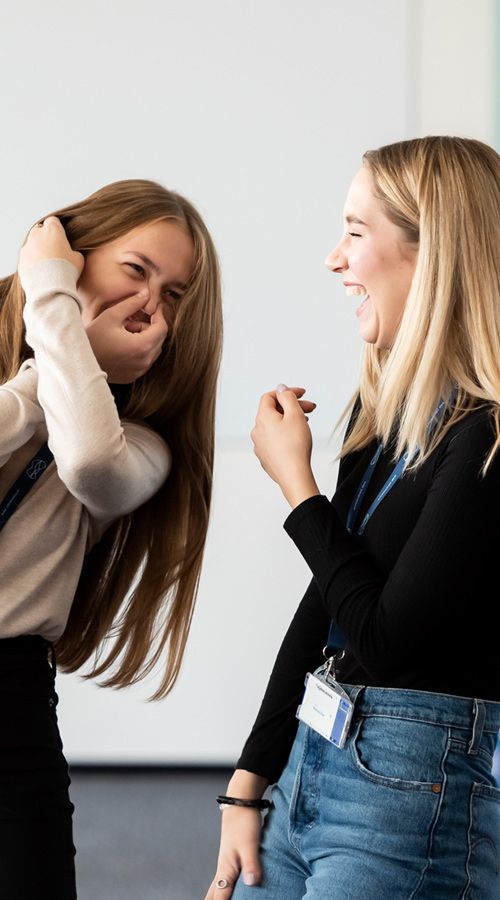Abolish Visa requirements for Russian students and young people


- forsa survey: 86 per cent of Germans want more exchanges for young people from Russia
- Almost three-quarters of Germans support the introduction of visa-free travel for young Russians
- Wintershall Dea is donating 10,000 EUR to the German-Russian Youth Exchange Foundation
The political tensions between the European Union and Russia are also deepening social rifts, leading fewer and fewer young Russians to view their country as part of Europe. According to a survey by the Moscow-based Levada Center for public opinion research, 71 per cent of Russians under the age of 25 no longer consider Russia a European country. This is bad news for future relations with Europe and has prompted Thilo Wieland, Wintershall Dea’s Executive Board member responsible for Russia, to call for a bold and decisive change to Germany’s current visa policy. Wieland is demanding that visa requirements for stays in Germany be lifted for Russian students and people under the age of 25.
A recent survey by the German opinion research institute forsa reveals that an overwhelming majority of Germans support this idea. The poll shows that 71 per cent of German citizens are in favour of lifting visa requirements for Russian students and young people under 25 as a first step towards improving mutual understanding between Germany and Russia. According to the forsa survey, this demand receives even higher-than-average approval among Green Party supporters (81 per cent) as well as among those under the age of 30. Among 18- to 29-year-olds, as many as 84 per cent would like to see youths and young adults from Russia enjoy visa-free travel. Furthermore, this desire was expressed to an equally high degree by Germans in both the western and eastern parts of the country.
“In our increasingly interconnected and globalised world, we need open-minded and cosmopolitan young people who can confidently shape the international relations of tomorrow,” says Thilo Wieland. “Russia remains an important partner for Germany and the EU. Here at Wintershall Dea, we have been working closely with Russia for a long time, and we are delighted that a significant proportion of Germans would like to see a strengthening of youth exchanges and a reduction in visa requirements for the younger generation. We believe that these are important steps towards enabling Germany to re-engage in dialogue with the people of Russia.” Wintershall Dea commissioned the forsa survey to mark the Potsdam Encounters conference, which begins today in Germany.
As Europe’s leading independent gas and oil producer, Wintershall Dea is now supporting school exchange projects and youth encounter programmes with a EUR 10,000 donation to the German-Russian Youth Exchange Foundation (DRJA). In total, the DRJA funded around 7,000 projects with roughly 200,000 participants between 2006 and 2020. Due to the coronavirus pandemic, the number of young people, teachers and educational professionals participating in these projects in 2020 fell below 800, or only about 7 per cent of the previous year’s figure. In partnership with other youth organisations, the foundation has responded to the challenges posed by COVID-19 by coming up with digital formats that can continue to facilitate dialogue and forge new ties. Once the pandemic has been contained, the focus will shift back to in-person encounters. The donation from Wintershall Dea will be used to facilitate intercultural language and education projects between Germany and Russia, to provide assistance in obtaining visas, and to offer additional training to teachers.
Young people from Germany and Russia are currently meeting online in individual projects. For example, as part of a DRJA-supported project, young students and other interested young people from Germany, Russia and Ukraine virtually convened for a digital study camp in February and March 2021 to discuss female perspectives on forced labour during the Second World War with women who had experienced this first-hand.
Wintershall Dea has been active for many years in fostering German-Russian relations and is also involved in promoting young talent. For example, as part of the city partnership between Kassel, home to one of Wintershall Dea’s corporate headquarters, and the Western Siberian city of Novy Urengoy, Wintershall Dea has been supporting collaboration between the North Hesse School Student Research Centre (SFN) and School No. 17 in Novy Urengoy.
About Wintershall Dea
Wintershall Dea is Europe’s leading independent gas and oil company with more than 120 years of experience as an operator and project partner along the entire E&P value chain. The company with German roots and headquarters in Kassel and Hamburg explores for and produces gas and oil in 13 countries worldwide in an efficient and responsible manner. With activities in Europe, Russia, Latin America and the MENA region (Middle East & North Africa), Wintershall Dea has a global upstream portfolio and, with its participation in natural gas transport, is also active in the midstream business.
Wintershall Dea was formed from the merger of Wintershall Holding GmbH and DEA Deutsche Erdoel AG, in 2019. Today, the company employs around 2,500 people worldwide from over 60 nations.
Press Contact



